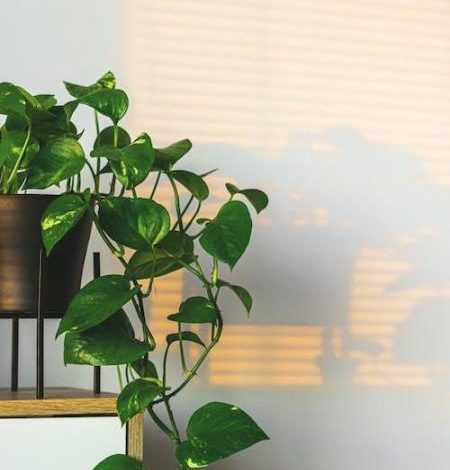Apartment Gardening 101: Tips for Growing Plants Indoors

Apartment Gardening 101: Tips for Growing Plants Indoors
Why Should You Start Apartment Gardening?
Have you ever dreamed of having your own garden, but feel limited by your apartment living situation? Well, fear not! Apartment gardening is the perfect solution for plant lovers who are low on outdoor space. Not only does indoor gardening liven up your living space, but it also has numerous benefits for your physical and mental well-being. Here are a few reasons why you should start apartment gardening:
1. Improve Air Quality: Plants act as natural air purifiers, reducing toxins and increasing oxygen levels, creating a healthier living environment.
2. Beautify Your Space: Indoor plants add a touch of nature and beauty to your apartment, giving it a fresh and inviting atmosphere.
3. Boost Mood and Reduce Stress: The act of nurturing plants has been shown to reduce stress and anxiety while improving mood and promoting relaxation.
What Plants Are Suitable for Apartment Gardening?
When it comes to apartment gardening, selecting the right plants is crucial for success. Here are a few types of plants that thrive indoors:
1. Succulents: Ideal for beginners, these low-maintenance plants come in various shapes, sizes, and colors. They can withstand dry indoor conditions and require minimal watering.
2. Herbs: Many herbs, such as basil, mint, and rosemary, can be grown indoors and are perfect for adding fresh flavors to your cooking.
3. Leafy Greens: Spinach, lettuce, and kale are just a few examples of greens that can be easily grown indoors, providing you with a constant supply of fresh, nutrient-packed leaves.
Essential Tips for Apartment Gardening Success
Now that you understand the benefits of apartment gardening and know which plants to choose, here are some important tips to ensure your indoor garden thrives:
1. Consider Light Conditions: Different plants have different light requirements. Place sun-loving plants close to windows, while shade-tolerant ones can be positioned further into the room.
2. Choose the Right Containers: Opt for containers with good drainage to prevent waterlogged roots. Consider the size of the plant’s root system when selecting pots.
3. Watering Techniques: Overwatering is a common mistake in indoor gardening. Water your plants thoroughly but avoid leaving them sitting in standing water.
4. Fertilize Regularly: Indoor plants require regular feeding as their growth is limited by the amount of nutrients in their pots. Use a balanced liquid fertilizer at half the recommended strength.
5. Monitor Humidity Levels: Most indoor plants prefer higher humidity levels. To increase humidity, you can place a tray filled with water near your plants or use a humidifier.
FAQs
Q: How often should I water my indoor plants?
A: The frequency of watering depends on several factors, such as plant type, pot size, and environmental conditions. As a general guideline, water your plants when the top inch of the soil feels dry.
Q: Can I use regular potting soil for my indoor plants?
A: It’s best to use a well-draining potting mix specifically formulated for indoor plants. Regular garden soil may compact and prevent proper water drainage.
Q: Do indoor plants need fertilizer?
A: Yes, indoor plants benefit from regular fertilization as the nutrients in their pots deplete over time. Use a balanced liquid fertilizer and follow the manufacturer’s instructions for application.
Q: Can I start apartment gardening without natural light?
A: While natural light is preferable, you can still grow some low-light plants, such as snake plants or ZZ plants, in apartments with limited sunlight. Alternatively, you can use grow lights to supplement the lack of natural light.
Wrapping Up
Apartment gardening is an excellent way to bring nature into your living space, even if you have limited outdoor area. By following these tips and selecting the right plants, you’ll enjoy the many benefits of indoor gardening while enhancing the beauty of your apartment.
Remember, with a little time and effort, anyone can become a successful apartment gardener. So, don’t let your small space hold you back from enjoying the joys of gardening!



